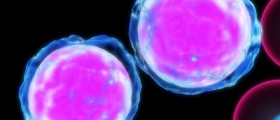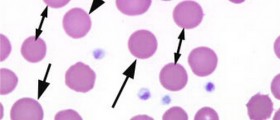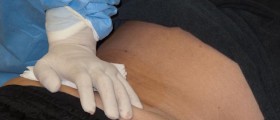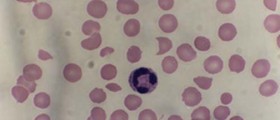
Neutropenia and the causes
Neutropenia is the term that refers to reduced number of granulocytes in the blood and granulocytes belong to a group of white blood cells. There are several factors that can cause neutropenia and they are divided into hereditary and non hereditary. Mild cases of neutropenia can pass without any symptoms, while more difficult cases are called agranulocytosis and they refer to the complete lack of granulocytes.
Non hereditary factors include medications, infections, neoplasm (malign infiltration, metastasis), hypersplenism, systemic erythemic lupus, megaloblastic anemia etc. Drugs that can induce neutropenia are most often those used to deal with pain, antithyroid drugs, antiarrhytmics, anti depressants, anticonvulsants, and antimalarials. Antibiotics also belong to this group and this is why doctors generally try to avoid prescribing antibiotics unless it is really necessary. As for infections as etiological factors, influenza virus must be mentioned, as well as infective hepatitis, rubeola, etc.
Neutropenia sometimes occurs when the immune system is at a low level, which happens to patients undergoing therapies with immune suppressant drugs, people with active HIV virus, and those suffering from miliary tuberculosis. Radiotherapy can be an excellent inducer, because during that recovery method, bone marrow is targeted by rays and cytostatics in combined method, so neutrofiles are reduced. Neutropenia is commonly followed by hematological illnesses, such as chronic hypoferremia (decreased iron levels), pernicious and aplastic anemia. This condition can also occur with cirrhosis and in patients undergoing hemodialysis. Anaphylactic shock and cachectic condition can provoke neutropenia, too.
Diagnosis is based on the evaluation of the complete condition of the patient, common infections are present, but shaking, high body temperature, paleness, throat ache, all these might be signs of neutropenia.
Forms of neutropenia
Agranulocytosis is a more dangerous form of neutropenia. One of the symptoms of this condition is the formation of ulcers in the mouth, on tonsils and gingives. These ulcers can also appear on other parts of the body, which usually lasts for a couple of weeks. Main therapy method is elimination of the etiological factor, blood analysis has to be done all the time, and antibiotics have to be used in high doses. The hardest cases will be given transfusion of neutrophiles. Hereditary forms are very rare and they include cyclic neutropenia, chronic hypoplasmic neutropenia, primary splenic neutropenia and infantile agranulocytosis. Quite often, chemical substances and their metabolites can be the cause of neutropenia. This form occurs in people who work or live in the vicinity of hazardous material (herbicides, pesticides…). As for prognosis, it has to be said that easier forms will subdue on their own, while medications are the primary therapy method for more dangerous cases.

















Your thoughts on this
Loading...